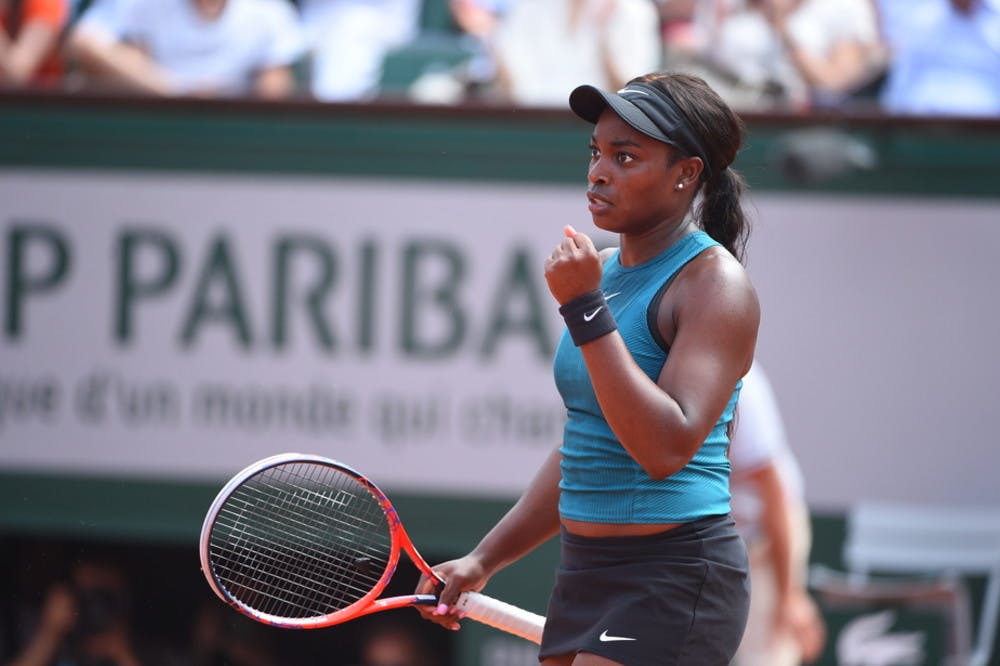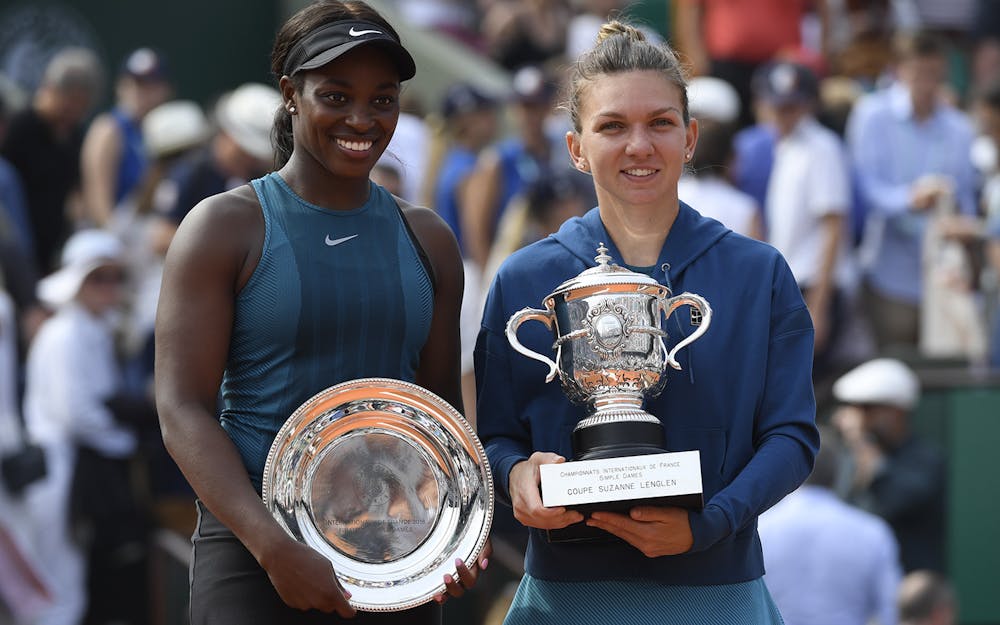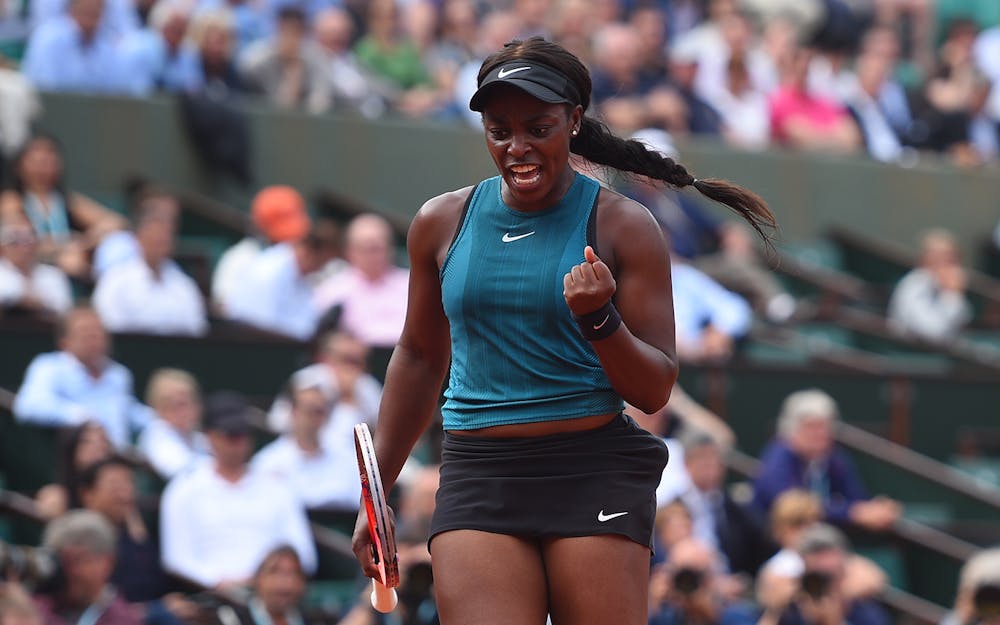"I'm not satisfied, but I am proud of myself"
“Not very many players ever get to a Grand Slam final,” she said. “So the fact that I have won one and been in another final in such a short period of time, I'm very optimistic and very pleased with myself. I'm not satisfied, but I am proud of myself.”
Yes, she has matured as a person and a player but Sloane will never truly change. There is still a spiky side to her and as she sat before the world’s press, she had a score to settle. She may have been smiling as she said it, but she wanted to make her point.
“Can I just state for the record that all of you guys in here were Tweeting that I had a losing record anywhere except for the United States,” she said with a smile. “So I think I have done very well to make the finals of the French Open. So if any of you want to Tweet that, I would be very happy, give you guys a like, a reTweet or something.
“Because you seem to only want to say, She's 0 and 8 in the other countries, and blah, blah, blah. Yeah, it's you and you and a lot of you.”
Pointing to certain members of the press corps, she made them sit uneasily in their seats for a moment. Sloane knows who has written what about her – and when. And she remembers it. For a long time.
 ROLAND-GARROS
20 May - 9 June 2024
ROLAND-GARROS
20 May - 9 June 2024


 ©Corinne Dubreuil/FFT
©Corinne Dubreuil/FFT ©Philippe Montigny / FFT
©Philippe Montigny / FFT
 ©Corinne Dubreuil / FFT
©Corinne Dubreuil / FFT